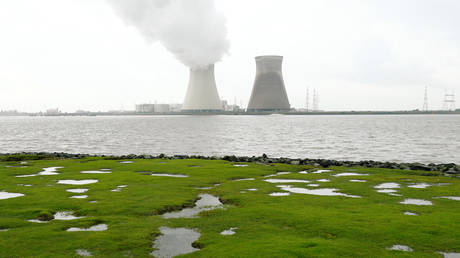
The Belgian government has reached an agreement which will see its nuclear power stations close by 2025, although the possibility of extending the life of two reactors remains open.
On Thursday, Belgium’s seven-party coalition hammered out an agreement on nuclear power. The deal, which was agreed just a week before the end-of-2021 deadline, will see all the country’s nuclear power plants close by 2025. Lawmakers made the accord after talks that went on throughout the night.
As part of the deal, there remains an option to extend the life of two of the country’s seven reactors. Prime Minister Alexander De Croo said it was possible that certain nuclear reactors could operate for longer, but he contended it was “very unlikely.”
The agreement brings to an end months of debate within the government, with the Greens demanding that a 2003 law setting out a nuclear exit be respected, and the liberals favoring extending the life of two of the country’s newest reactors.
Belgium plans to have completed decommissioning by 2045, with the first reactor due to close on October 1, 2022.
The country’s two nuclear plants and seven reactors are managed by French power giant Engie. The closures will see Belgium move in the same direction as Germany, with nuclear being phased out.
Belgium must now address a shortfall in future energy supplies. The winner of a contract to build a new gas power station near Brussels recently had its permit rejected. The license may be granted on appeal by March 15.
Despite the move away from nuclear power plants, the government has backed a 100-million-euro ($113 million) investment into researching new nuclear technology, with a focus on smaller modular reactors.




